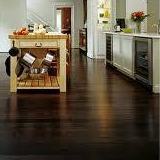Life Cycle Assessment (LCA) is the commonly accepted methodology to systematically assess the environmental impact of a product or material over the full life cycle, thus from the extraction of resources until the end phase of demolition or recycling (from cradle till grave). The LCA methodology is internationally standardized in the ISO
14040 series, and measures the environmental impact in several categories, including depletion, air quality (dust, smog), toxicity and global warming
potential (GWP). The environmental impact caused by a product can be caught under one number, for example expressed in eco-costs. Given the increasing attention with respect to global warming, the GWP of products is often assessed separately in a so-called carbon footprint. In this assessment all the greenhouse gas emissions during the life cycle of a product are measured in kg CO2 equivalent.
The official LCA, the Delft University of Technology has performed for Moso, shows that bamboo is an important CO2 ‘fixator’. This means that bamboo absorbs, during its growth and life until harvest, a relative large amount of CO2 from the air / atmosphere (and releases as subsequent large amount of O2 in return through the photosynthesis
process). Since the area of permanent MOSO bamboo plantations is growing steadily, an increasing amount of CO2 is permanently locked in the plantations
plants. After the harvest this CO2 will remain locked in the material and will only be released when the material is discarded or burnt in the end of life
phase, preferably in electrical power plants where it can substitute the use of carbon intensive fossil fuels and can thus be perceived as additional carbon credit following LCA methodology.
On the other hand, CO2 is released by machines and transport means which are needed to produce the bamboo products and bring them to the customer. For
MOSO, it is very important to keep the emissions of greenhouse gases during this process as low as possible, by efficient production and using saw dust as energy source. By comparing the CO2 fixation and fossil fuel substitution in the End-of-life phase, with the emissions during production, transport and use, the CO2 balance of a product over the full life cycle can be determined. When the carbon credits through CO2 fixation and fossil fuel substitution are larger than the emissions, the product is CO2 neutral.
The LCA report concludes that all assessed MOSO products (all solid bamboo flooring, decking, panels and veneer) are CO2 neutral or better over the full life cycle. The report is available upon request at Moso.
The growing speed of renewable materials in terms of annual yield in cubic meters per hectare is not included in a carbon footprint and can therefore be perceived as an additional environmental credential for renewable materials in general and in particular for the most rapidly growing materials such as MOSO bamboo.

Comments by our Users
Be the first to write a comment for this item.